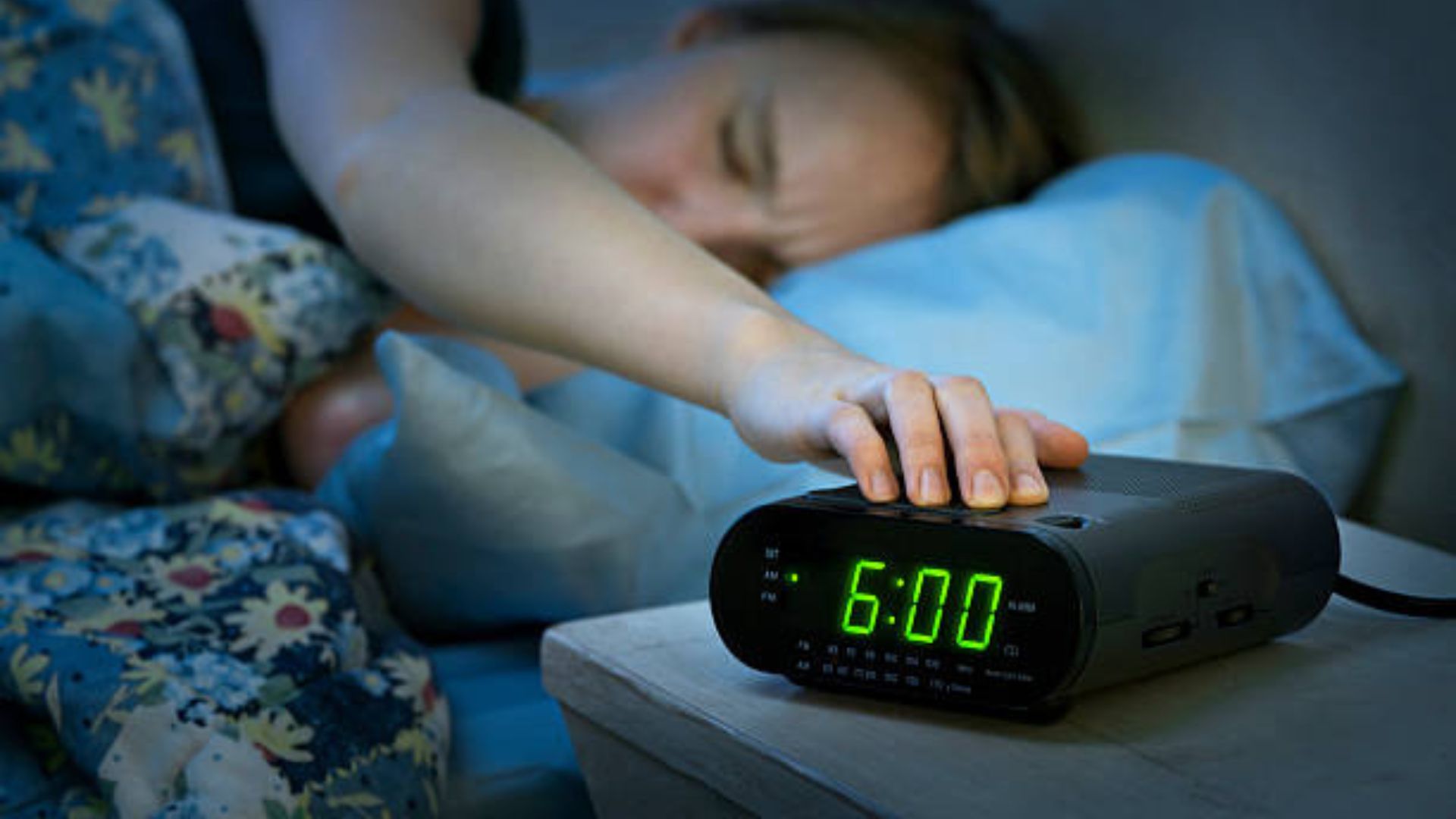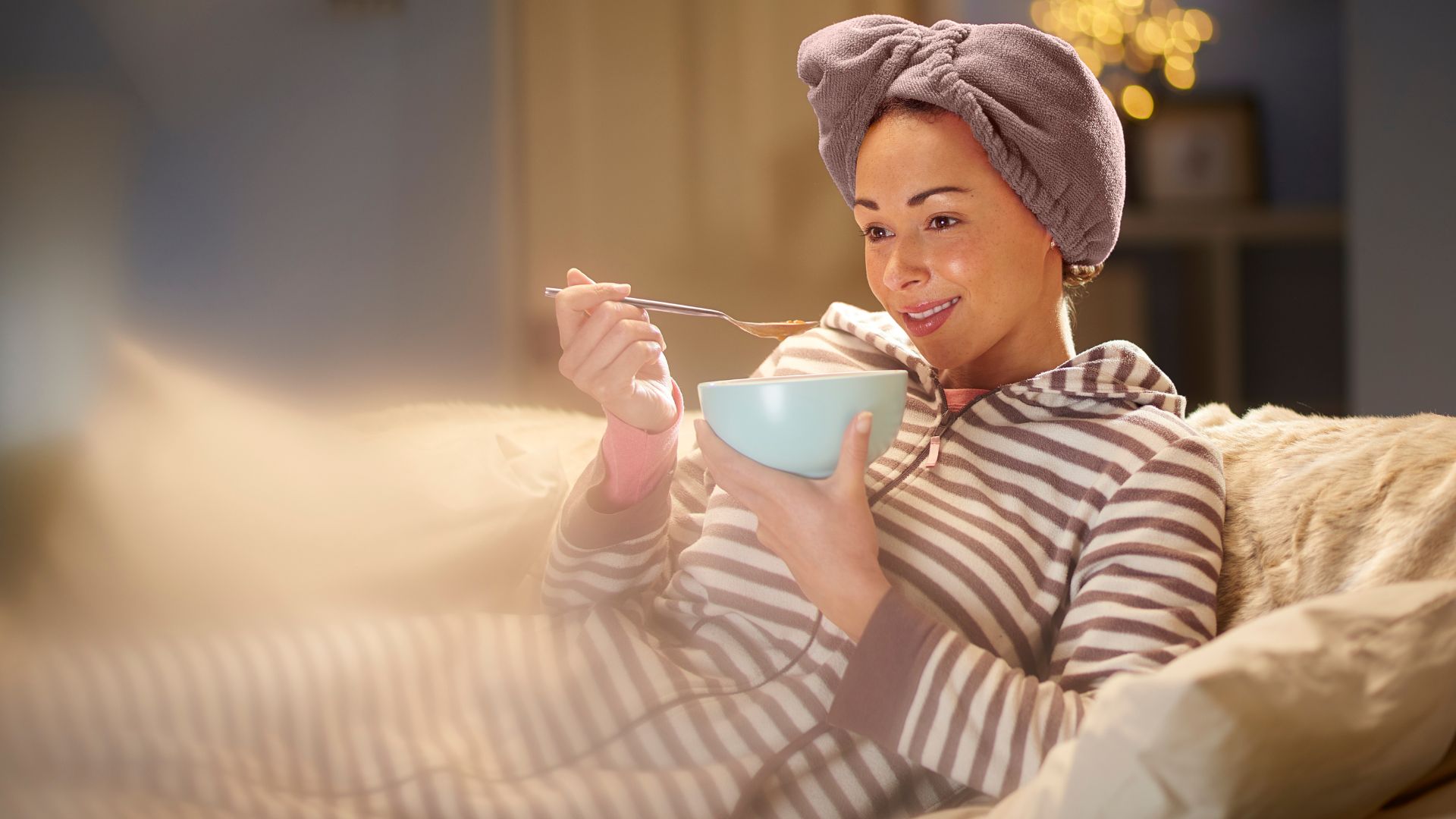Waking up early after a late night is the best way to fix your sleep schedule — here's why
Sleep tracking expert shares three hacks to fix your sleep schedule after one too many late nights

If you want to get enough sleep, it's important to establish a consistent routine where you go to bed and wake up at the same time every day. However, an upcoming deadline, travel or a big social event at night can mean you hit the hay later than usual.
If that happens, how can you get your sleep schedule back on track? You might think it's a good idea to get your full seven to nine hours of sleep by having a lie-in and waking up later than usual. Unfortunately this can be a huge sleep mistake.
To help you, we recently spoke with Alexandra Zatarain, co-founder of Eight Sleep, the brand behind some of this year's best mattresses for personalized sleep — about the hacks she uses to keep her sleep schedule on track.
3 hacks to fix your sleep schedule fast
1. If you go to bed late, wake up early anyway
Alexandra Zatarain goes to bed between 9.30pm and 10pm every night and wakes up naturally at the same time each morning. However, there are times when social events or a busy work schedule can disrupt that routine. If that happens to you, Zatarain has a simple trick for immediately getting your sleep schedule back on track...
"Try to maintain your same wake-up time within a 30-minute window," she tells us. "So if I go to bed a few hours later, I try to get less sleep than usual by still waking up at my usual wake up time."

Deliberately aiming for less sleep than usual might sound like a recipe for temporary sleep deprivation – and it is; that's the point. "That's going to help me the following day to feel tired, because instead of sleeping my usual eight to nine hours, maybe I get seven or six and a half. The next day, I'm going to want to go to bed at 9pm or 9.30pm [her usual bedtime]."
What if you have multiple late nights in a row? Zatarain believes that you should go through a "sleep reset" after all those busy evenings die down. "Once you're ready to go back into your routine, start again with the falling asleep and waking up at a set time."
Get instant access to breaking news, the hottest reviews, great deals and helpful tips.
2. Only use melatonin as a last resort
Melatonin supplements and gummies have grown in popularity over the years, but should you take melatonin gummies to fall asleep? Zatarain believes they should only be used as a last resort and warns against consistent use. You should also consult your doctor before considering melatonin.
"If I'm really, really tired or a jet lagged and I need a bit of a boost [to relax], maybe I'll have some melatonin," she says. "Just be mindful; don't disrupt your body with a lot of chemical components.
"It doesn't mean that they're bad – they're natural chemicals – but they are going to change a little bit of your biology during that time. Ideally you should find solutions outside of that unless you have some sort of medical condition that requires it."
3. Have a proper wind-down routine
If you've woken up early after a late night yet still don't feel tired come bedtime, Zatarain recommends establishing a good wind-down routine to help you feel sleepy. "My wind-down routine is simple: I try not to be working on my computer past 7.30pm, then I have a dinner that's easy to digest. I also don't drink alcohol."

How to create a relaxing nighttime routine when you're busy
Sometimes, creating a winddown routine can be difficult if you're having a busy week where you're travelling, staying out late, taking on more shift, or juggling different responsibilities. Here are three ways you can get ready for bed during busy periods:
- Have (non-sugary) cereal for dinner: If it's been a long day and you really don't have the energy to cook, you can have cereal for dinner without it affecting your sleep. Nutritionist Jessica G. Anderson of Top Nutrition Coaching recently told us that a bowl of low sugar, low saturated fat cereal with high fiber content can make a great-pre-bedtime snack.
- Use visualization to fall asleep: The Sleep Visualization Method involves imagining yourself in a peaceful setting or scenario to help you fall asleep. A study by the University of Oxford found that picturing something serene, like a meadow or a relaxing afternoon in the summertime, helps you drift off.
- Brush your teeth straight after dinner: Brushing your teeth right before bed is a common nighttime routine mistake. James Wilson, a sleep expert for MattressOnline, told us: "Before you start relaxing for the evening, make sure you have done everything you usually do before bed, like getting into your PJs and brushing your teeth. That way, you can jump into bed when you feel sleepy, rather than doing anything that may wake you up."

Frances Daniels is a PPA-accredited journalist and Sleep Staff Writer at Tom's Guide with an MA in Magazine Journalism from Cardiff University. Her role includes covering mattress and sleep news and writing sleep product reviews and buyer's guides, including our Best Hybrid Mattress 2025 guide. She is interested in the relationship between sleep and health, interviewing an array of experts to create in-depth articles about topics such as nutrition, sleep disorders, sleep hygiene, and mattress care. She is also our specialist on mattress toppers — producing bed topper reviews and taking care of our Best Mattress Toppers 2025 guide — and leads content relating to fiberglass-free beds for a non-toxic sleep. Outside of Tom's Guide, she has written for Ideal Home and Marie Claire.
 Club Benefits
Club Benefits





